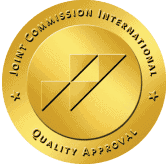What Is an Intensive Outpatient Program?
An intensive outpatient program, or IOP, is a type of structured treatment for individuals experiencing substance use or mental health challenges. It’s more involved than traditional outpatient therapy but offers greater flexibility than inpatient or residential care. Rather than living at a facility full time, individuals in an IOP attend scheduled sessions multiple times per week, often for several hours a day.
In Lake Forest and surrounding areas, IOP services are accessible both in person and virtually, allowing people to receive consistent support while continuing to live at home and manage daily responsibilities. Sessions typically include therapy groups, individual counseling, psychoeducation, and skill-building, all designed to help participants address the underlying causes of addiction or emotional distress and move forward in recovery.

What to Expect From an Intensive Outpatient Program in Lake Forest
Before starting an intensive outpatient program, individuals go through a thorough clinical assessment. This process helps determine whether IOP is the right level of care and allows the treatment team to create a personalized care plan based on each person’s needs, strengths, and goals.
Most IOPs meet three to five times a week, with sessions lasting around three hours. Over the course of treatment, individuals may participate in:
- Group therapy
- Individual therapy
- Family therapy and support
- Relapse prevention and coping skills
- Trauma-informed counseling and EMDR
- Meditation, yoga, or other mindfulness-based activities
- Life skills and nutrition education
- Medication management when appropriate
As clients progress, their treatment plan may be adjusted to reflect their growth and evolving needs. The goal is to help people not just achieve stability, but build confidence, restore relationships, and live a healthier, more balanced life.

Who Benefits Most From Intensive Outpatient Programs (IOPs) in Lake Forest?
IOP is a flexible option that supports people in many different stages of healing. It can be especially helpful for:
- Individuals stepping down from inpatient or partial hospitalization programs
- Those with mild to moderate symptoms of addiction or mental illness
- People who want to apply coping strategies in real-world situations while still having professional support
- Clients with safe and stable home environments
- Working adults, students, or caregivers who need a treatment schedule that fits their lifestyle
Whether someone is returning to daily life after a stay in residential care or beginning treatment for the first time, IOP can provide the structure and accountability needed to move forward.
Why Consider IOP in Lake Forest, CA?
Participating in intensive outpatient treatment offers several key benefits, especially for individuals who want a strong foundation without pausing everything else in life.
People often choose IOP because it:
- Allows them to maintain work, school, or family responsibilities
- Reduces the cost of care compared to inpatient treatment
- Encourages independence while still offering clinical support
- Strengthens local support systems through group interaction
- Protects privacy and allows for discretion
- Builds daily habits that reinforce long-term recovery
The outpatient setting also gives individuals the opportunity to face challenges as they come up in real time—whether it’s managing cravings, navigating stress, or repairing relationships. With ongoing support and guidance, each day becomes part of the recovery process.

How Does Intensive Outpatient Treatment for Addiction and/or Mental Health Issues in Lake Forest, CA Support Long Term Recovery
Recovery doesn’t end when treatment sessions do—it continues in the choices made each day. IOP is designed to help individuals develop the tools and routines that support long-term progress. By allowing people to stay active in their lives while receiving structured care, this level of support encourages self-awareness, accountability, and resilience.
Clients in IOP often report that having consistent check-ins with a therapist or group keeps them grounded. Whether someone is facing a new challenge or celebrating a small win, IOP provides a space to process, reflect, and stay committed to recovery goals. Over time, participants learn to manage triggers, avoid high-risk situations, and maintain the healthy habits they’ve developed in treatment.
The Role of Family and Community in Recovery
Addiction and mental health struggles don’t exist in a vacuum—they affect relationships, routines, and support systems. That’s why many IOPs include family therapy or offer resources to educate loved ones about the recovery process. When family members are involved and informed, it can lead to stronger communication, better boundaries, and more supportive home environments.
In a community like Lake Forest, where people value connection, these relationships are especially important. Engaging local support systems can improve treatment outcomes and create a sense of belonging that makes recovery feel sustainable. Whether it’s through group therapy, family involvement, or local recovery groups, connection plays a major role in healing.
Finding The Level of Care For Your Needs
Not everyone needs the same type of treatment. Some may benefit from a higher level of care such as a partial hospitalization program (PHP), while others may thrive in standard outpatient therapy. Intensive outpatient programs sit in the middle, providing structure without full-time care.
During the admissions process, a trained professional will assess your needs and make a recommendation based on your clinical history, current symptoms, support system, and daily responsibilities. IOP may be the right fit if you need more than occasional therapy but aren’t in crisis or require inpatient stabilization.
Choosing the right program can be the difference between feeling overwhelmed and feeling supported. A thoughtful assessment ensures that you receive care that matches your current stage of recovery.
Frequently Asked Questions About IOP in Lake Forest, California
A typical IOP session includes a mix of group therapy, individual check-ins, skills training, and recovery-focused activities. You might also participate in sessions focused on mental health, trauma, relapse prevention, or holistic practices like meditation. The format is structured but supportive, and it’s always guided by licensed professionals.
Standard outpatient therapy usually involves one session per week. IOP offers multiple sessions each week and provides a more structured and intensive experience. It’s designed for people who need regular support but are stable enough not to require residential treatment.
After IOP, you may step down to a standard outpatient program or continue with individual therapy and community support groups. Some people also stay connected through alumni networks or ongoing check-ins. The goal is to create a long-term plan that helps you stay on track, even after formal treatment ends.
Yes. Many people seek IOP for both addiction and co-occurring mental health concerns like anxiety, depression, or PTSD. Treatment plans often include therapy and support for both areas, which can lead to more lasting and meaningful progress.
Yes, and it’s often encouraged. Many people in IOP also attend outside support groups like Alcoholics Anonymous (AA), Narcotics Anonymous (NA), or SMART Recovery. These groups provide additional accountability and peer connection, which can strengthen your recovery outside of clinical sessions.
That’s more common than people think. IOP is often a great option for those who have relapsed or struggled with past programs. Every recovery journey looks different. This time, your treatment plan can be adjusted to reflect what didn’t work before, so you get the kind of support that fits you now.
Your treatment team will track your progress and meet with you regularly to review goals. When you’ve built more stability, are managing symptoms well, and feel confident using the tools you’ve learned, you may transition to a less intensive level of care. This could mean moving to weekly therapy or joining an outpatient program with fewer hours.
Need Help Finding a Lake Forest Intensive Outpatient Program?
If you’re looking for flexible, compassionate, and clinically effective care, a Lake Forest Intensive Outpatient Program may be the right path forward. Whether you’re managing addiction, mental health challenges, or both, IOP offers structure and support while allowing you to stay connected to daily life. With evidence-based treatment, personalized care plans, and a commitment to long-term healing, this level of care empowers you to take meaningful steps toward a healthier future. To learn more or speak with a care coordinator, call us today at (833) 530-0291.


